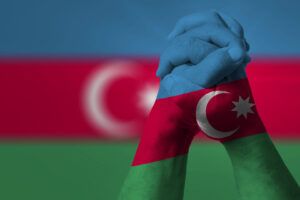Dr. Gubad Ibadoghlu, Senior Analyst, Economic Research Center
On 15 December, Josep Borrell, Vice-President of the European Commission took part in a European Parliament plenary debate on the recent developments in the Eastern Partnership countries.
In his remarks, Mr Borrell told he considers civil society and independent media in EaP countries as effective tools in increasing democratic resilience and tackling corruption.
“Strengthening resilience is the main objective and core element of the future Eastern Partnership policy. We will work with partners on five areas of resilience – economic, democratic, environmental, digital, and societal. I think it is key to empower civil society and independent media to increase accountability, to expose corruption and to enhance critical thinking,” he added.
StrategEast has interviewed the leading experts from Eastern Partnership countries to find out their take on independent media and civil society development in their countries. Here are the answers from the expert on Azerbaijan.
How do you assess the degree of independent media and civil society development in your country?
Civil society and media organizations in Azerbaijan have weak organizational capacities and little public support. Independent civil society was abolished due to the pressure of the repressive authority of Azerbaijan through the mobilization of resources that are crucial to the activities of NGOs. Instead of real civil society institutions that have once been a part of the global and national dialogue platforms, these authorities are very active in filling the places with the dependent and controlled NGOs by the state’s financial resources. Independent NGOs have been fragmented and weakened in Azerbaijan due to the increasing toughening of both legal and practical barriers hindering an independent civil society’s activities. Thus, independent civil society institutions in these countries have faced severe difficulties in implementing their organizational missions. Therefore, to get out of the situation, they have acted in various ways and have chosen different tactics to survive and maintain their existence as soon as possible, not as long term strategic plans. Thus, a group of independent NGO leaders from Azerbaijan is forced to leave the country and live in exile. While some of them are currently active, most of them have either changed their occupation or generally stopped their activities. While other independent NGOs remain in the country, they temporarily suspend their actions to maintain their reputation and keep the passive position insured from possible effects. Finally, the latter group of independents did not keep up the pressure changing their positions and acting among government-oriented NGOs within the government’s boundaries.
Do civil society and media independence influence the fight against corruption in your country?
The prevalence of wide-ranging national problems in Azerbaijan, like a high level of corruption and an imitation of the democratic institutions, has considerably narrowed the overall public-political circle in the country. Over the past six years, the Azerbaijani authorities have created more concrete problems to hinder local and foreign NGOs’ activities and prevent their total development. These problems are as following:
- The current legislation has restricted the scope of their activities by applying legal measures;
- Public image of CSOs was deliberately damaged through running regular anti-campaigns in the state-run media outlets, and their access to the electorate has diminished;
- The geography of their activities was narrowed; access to the regions was restricted through administrative tools and employment of full control mechanisms;
- The recycling process of cadre was weakened due to an influx of experts to other (business and academic) sectors, reproductions were decreased as well as due to an absence of specialized personnel, educational and practical skills were not able to complement each other;
- The legitimacy has been restricted, the flow of new NGOs into the sector have been blocked through the existing legislation and the centralized regulatory means;
- Involvement of volunteers has been toughened by legislation, and their contributions have been reduced;
- Due to the absence of financial sustainability, jobs were shot down, and skilled cadres abandoned NGOs;
- An internal cooperation culture and practices of NGOs have declined; and solidarity, mutual trust and healthy competition among NGOs were not formed;
- The institutionalization process on joint activities was developed weakly, and therefore, internal conflict management and settlement mechanisms of NGOs did not work;
- CSOs have become polarized, individualized, or marginalized, and their activities were either politicized or overlapped with government policy.
Apparently, NGOs in Azerbaijan are exposed to numerous restrictions and pressures. In this case, the main mission in front of them is to survive through keeping their existence and to continue their activities regardless of difficult conditions.
As for CSOs and media involvement in anti-corruption, despite the fact that the Law of the Republic of Azerbaijan on Public Participation came into force on January 1, 2014, there are no Public Councils operating in the Ministry of Economy, the Ministry of Finance, or the State Oil Fund.
In addition, I would like to note that the loyalty of pro-government NGOs represented in some Public Councils already weakens the opportunities to take public opinions and positions into account in the decisions of government bodies. Public Councils under the Ministry of Education and some state universities are working relatively effectively in this direction. However, some central and local government officials do not comply with the Law even formally. Therefore, calls for public participation are meaningless statements, and the arrest of corrupt officials is a political show.




